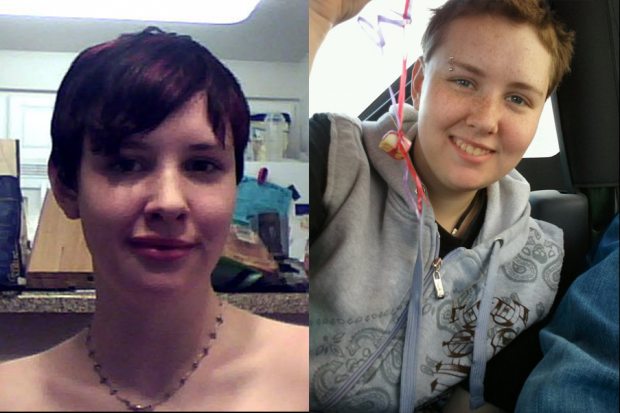Michael McEvoy, a 23-year-old Anchorage schizophrenic, was sentenced Friday to 60 years in prison, though he’ll be back on the streets in about 38 years due to mandatory parole. McEvoy purchased firearms locally despite his mental health issues, then shot and killed a teenage acquaintance in 2011.
McEvoy could have argued insanity due to his mental problems; both parties and the judge recognized McEvoy’s disease played a large role in the violent crime. But the state’s standards for that argument are said to be the most stringent in the nation, and the defense is rarely seen in Alaska, despite a plague of mental health issues.
Superior Court Judge Philip Volland handed down the sentence Friday in Anchorage. Ultimately, the judge agreed with the state’s proposed punishment but said such a case, with “varying societal rights that do not always work in harmony” presented a challenge.
Prosecutor Daniel Shorey lamented that the McEvoy was able to purchase a weapon. McEvoy bought the handgun on his birthday. The gun shop that sold him the firearm, the Ammo Can, acted within the law when it sold the gun, the attorney said. The shop also cooperated fully with the Anchorage Police Department’s investigation, he said.
McEvoy changed his plea to guilty in August, but officials say he had wanted to admit guilt for more than a year.
McEvoy was charged with killing Mozelle Nalan at Soteria House, a temporary housing facility for people experiencing mental distress or crisis, in June 2011. Soteria House is known for treating patients without medications. McEvoy shot Nalan multiple times in the head and neck. The female teen was a volunteer in training at the facility who had been living there nearly a year at the time of the shooting.
According to McEvoy’s public defender, the young man thought he was killing a dragon at the time of the shooting. He was suffering from a delusion, he said.
‘Couldn’t take away her soul’
The victim’s mother Natasha Nalan was the first to address the courtroom. Natasha and her three remaining kids -- ages 10, 11 and 15 -- listened to the sentencing over the phone; they live outside of Alaska.
She first read statements from Mozelle’s siblings. The 11-year-old wrote that McEvoy doesn’t “get the pain that mom and I feel … You deserve to burn in hell for what you did, but live.”
Natasha said two of the kids now suffer from anxiety conditions because of the murder. However, the mother spent most of her statement retelling warm memories of Mozelle, who was named after her grandmother.
Mozelle “would give you the shirt off her back” despite physical health problems with her spine and reoccurring arthritis. Later in life, she had mental issues with schizophrenia, Natasha said. She spent her childhood in Skagway, hiking and spending time with her siblings.
The mother began to choke up when she recounted the shooting. She said McEvoy shot her daughter five times in the head, destroying a portion of her brain and requiring Mozell’s eye to be stitched shut. Mozelle survived for more than two weeks on life support. Natasha spent that time at Mozelle’s bedside. On rare occasions, a tear would streak down her daughter’s face, she said.
“Whatever he did to her body, he couldn’t take away her soul,” said Natasha, who made the difficult decision of removing her daughter’s life support.
She told McEvoy she did not hate him, but that wasn’t true every day.
Diagnosed at 14
Public Defender Dan Lowery said McEvoy has suffered from severe mental health issues since he was a young teen. His client was first diagnosed at a psychiatric hospital at the age of 14.
Lowery said McEvoy suffers from schizoaffective disorder, a mental disease characterized by disorganized thoughts and mood swings. As a result of the jumbled thoughts, those affected experience auditory hallucinations and paranoid delusions, according to a list of diseases compiled by the World Health Organization.
At the time of the shooting, Lowery said, McEvoy was in the grips of a “very severe delusion.” According to the attorney, Mozelle’s boyfriend was on the phone with the girl when the shooting occurred. He overheard the then-21-year-old McEvoy talking about killing a dragon. Other witnesses told officials the same thing, he said.
“McEvoy at that time, because of his disease, believed he was interacting with a supernatural being,” Lowery said. “It seems clear that he didn’t know he was interacting with a human being.”
Following the shooting, police transported the victim to the station. Attorneys watched hours of video of McEvoy ranting and raving, making little sense, Lowery said. But Friday in the courtroom, the 23-year-old spoke only when asked for a statement. Medication he’s receiving at the jail has changed him, Lowery said.
Insanity defense in Alaska
The attorney highlighted McEvoy’s mental history before shifting his argument to the stringent standards of the insanity defense in Alaska.
In 1982, Alaska adopted a new statutory standard for its insanity defense, a standard that’s been in place since. The changes here and Outside were a reaction to the attempted assassination of President Ronald Reagan. The assailant, John Hinckley, was found not guilty by reason of insanity. Public outcry over the verdict led to the Insanity Defense Reform Act.
As an article in Alaska Law Review noted, other states narrowed defendants’ abilities to claim insanity for their crimes, but Alaska “is the most stringent in the nation.”
In Alaska, defendants must show that, at the time of the crime, he or she “was unable, as a result of the mental disease or defect, to appreciate the nature or quality of (the) conduct” to use the insanity defense.
Alaska’s standard does not absolve a defendant based solely on an inability to know right from wrong. The court excuses crimes based on whether the defendant was able to “appreciate” the act committed. This limited definition of insanity limits the defense to people suffering from the most extreme forms of mental illness.
Lowery argued McEvoy would have fit within the definition. “All the same, I can assure the court I’ve spent many hours with Mr. McEvoy and talked about what to do in this case,” he said. “I’m comfortable that he’s made a decision he can live with. He feels strongly that this is the best decision.”
Hiding behind mental illness
McEvoy stood in court when he made his statement. “I’m wrong for not taking into consideration Mozelle’s life,” he started. He apologized to the girl’s friends, family and community. He also apologized for placing others in fear of death.
Referring to Mozelle as a dear friend, McEvoy said the girl’s beauty and spirit would surely live on.
McEvoy said his father tried to talk him into using an insanity defense, but he didn’t want to hide behind his mental illness.
Contact Jerzy Shedlock at jerzy(at)alaskadispatch.com. Follow him on Twitter @jerzyms.




